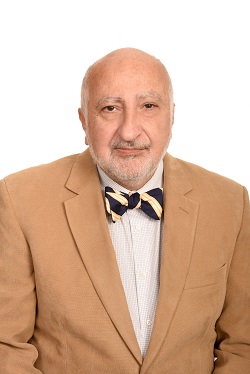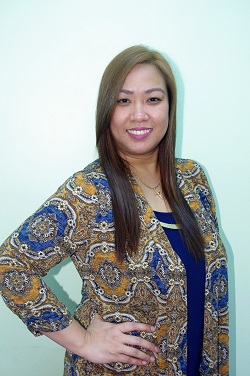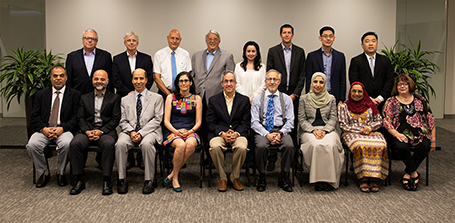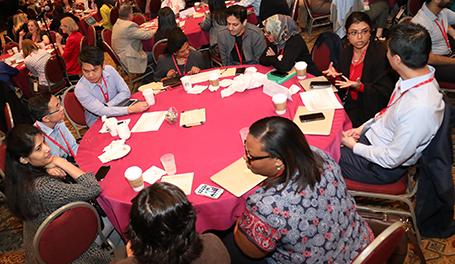Join Our Community
Having valid, up-to-date, and timely resources available at one's fingertips is essential in medicine today, and what is true for medical practice is also true for medical education. ACGME International (ACGME-I) understands the value of resources to assist faculty members and graduate medical education (GME) administrators in delivering quality educational programs and has made it a priority to develop resources that are easily accessible and that provide useful information.
The ACGME-I website is an excellent source of information on the ACGME-I Foundational and Advanced Specialty Requirements. For the Foundational Requirements, an important set of resources—applicable to all programs—can be found on the Documents and Resources page to answer questions like:
- Do we need to have a program letter of agreement (PLA) in place for a rotation at our cancer center?
- What are some assessment methods we can use to judge residents' performance?
These questions and more can be answered in the revised Program Directors' Guide to the Foundational Requirements. There is one guide for residency programs and another for fellowships; each contains definitions of terms, an explanation and rationale for the requirements, and a summary of how compliance with the requirement is assessed. The guides also contain an extensive bibliography on components of the Foundational Requirements, such as leadership, mentorship, and development of individualized education plans. These may be useful for a faculty journal club on an education topic.
For the Advanced Specialty Requirements, each specialty's page has the following resources specific to that specialty:
- Frequently Asked Questions (FAQs) that provide additional explanation or context to the Advanced Specialty Requirements
- For specialties that require ACGME-I Case Logs, there are FAQs and "Quick Guides" for residents, fellows, and faculty members, which summarize case entry requirements in that specialty
- Specialty-specific Milestones, as well as the Milestones Guidebook and Guide to the Clinical Competency Committee help in assessing learner competence within the specialty
Access individual specialty pages from the Specialties tab on the ACGME-I website.
ACGME-I recognizes education is more than the Requirements, and has also provided a growing list of video resources in its online distance education portal, Explore. For example: a designated institutional official (DIO) can view a video on resident remediation at a Graduate Medical Education Committee (GMEC) meeting as a professional development opportunity and to consider revising institutional policy; and a Clinical Competency Committee can require new members view the "Introduction to Assessment" video prior to their first meeting. Three videos that introduce accreditation, ACGME-I's requirements, and how to attain and maintain accreditation are also available in Explore and could be used as part of an orientation for a new coordinator or faculty member.
The hope is these resources provide information to help the international community continue to provide excellent graduate medical education. ACGME-I is always open to providing new, easily accessible resources, and welcomes input on the resources now available or what would be helpful in the future. Send feedback, questions, comments, and suggestions to acgme-i@acgme-i.org.
Think for a moment of the best medical educators you know. It might be a current colleague. It might be someone who mentored and taught you as a young physician. Then think about the qualities that set them apart as faculty members. Were they curious? Did they engage learners in discovering ways to find answers? Did they keep up with the latest innovations in medicine and unselfishly share their knowledge in a positive and nurturing way?
It is no secret that the best teachers are explorers who constantly engage in developing themselves as practitioners and as teachers. Exploration and development are closely linked to great teaching and quality education. That is why ACGME-I has chosen Explore as the name of its new distance education and faculty development portal.
Developing physician faculty as teachers is a requirement for all ACGME-I-accredited programs. All faculty members must participate in development programs designed to enhance the effectiveness of their teaching [Foundational requirement II.B.3.c)]. New Foundational requirements now under consideration include a requirement that the annual faculty evaluation incorporate the extent to which the faculty member has participated in development activities to improve their skill as an educator. These requirements are included because it is recognized that physicians are not trained as educators. In addition, just as the practice of medicine is changing, the practice of education is changing. Improved simulation, flipped classrooms, competency assessment, and problem-based learning are a few of the educational innovations that are unfamiliar to many faculty members.
Research shows that developing faculty members is not easy. Expectations for clinical productivity is the main barrier to faculty development. Activities that include interaction with other physician educators and that are delivered as short sessions in a flexible, cost-effective manner appear to have the most impact. (1)
ACGME-I’s Explore distance education and faculty development portal has been designed to meet these needs. Signing up for Explore is as easy as accessing the site from the top tab on the ACGME-I home page, submitting your email, and setting up a password. The site now offers a variety of videos on topics ranging from competency assessment, developing effective remediation activities, and recognizing resident and faculty member burnout. A series of videos help those that need to answer a citation, construct a block diagram, or enter information on faculty scholarly activity. Soon, videos will be added to provide an overview of ACGME-I accreditation that can be used during orientation for new designated institutional officials (DIO), programs directors, coordinators, or faculty members. ACGME-I will also soon add discussion groups to the portal so that educators in all ACGME-I-accredited institutions and programs can share ideas and discuss common issues.
DIOs are encouraged to discuss how Explore as can best be used at their institution during a meeting of the Graduate Medical Education Committee (GMEC). Program directors are encouraged to use a portion of a department meeting to view one of the videos or to lead a discussion after faculty have viewed the video on their own. Coordinators are encouraged to view the videos and discuss them with other coordinators at their institution or in their region. Most importantly, all those involved in ACGME-I-accredited program are encouraged to send us your ideas for new content, or ways to improve existing content. We welcome your input.
1. Philibert, Ingrid, Lyuba Konopasek, and Janet Riddle. “The International Literature on Teaching Faculty Development in English-Language Journals: A Scoping Review and Recommendations for Core Topics.” Journal of Graduate Medical Education 11, no. 4s (2019): 47–63. https://doi.org/10.4300/jgme-d-19-00174.
The following article is adapted from “ACGME International: The First 10 Years,” which was recently published in the Journal of Graduate Medical Education’s International Supplement. The article, written by Susan H. Day, MD, senior vice president, Medical Affairs, ACGME International; and Thomas J. Nasca, MD, MACP, president and chief executive officer, Accreditation Council for Graduate Medical Education and ACGME International, can be read along with other articles about the state of post-graduate medical education globally, at jgme.org.
In 2008, a request was made by the Ministry of Health in Singapore. It sought a transformational change in its graduate medical education (GME) program in order to reliably produce physicians, in greater numbers, more capable of serving Singapore’s needs… The ACGME was petitioned to provide accreditation services and parallel educational programs to transform the postgraduate system. A pilot project was formulated and approved in 2009 by the ACGME Board of Directors in response to this request.
***
ACGME International (ACGME-I) modeled the international standards in a framework similar to those used in the United States. Of paramount importance was the insistence that institutional accreditation was an essential first step. For program accreditation, a fundamental difference was to create a two-step process of foundational and advanced specialty accreditation. Foundational Requirements provide an educational framework similar to the ACGME Common Program Requirements. Advanced Specialty Requirements govern unique aspects of a specialty. In order to ensure implementation of the educational framework, Foundational Accreditation must be granted prior to consideration for Advanced Specialty Accreditation. This two-step process could be completed at the same time, but Advanced Specialty Accreditation is not considered unless the foundational application demonstrated substantial compliance.
***
The success of the pilot program in Singapore resulted in additional requests for accreditation services… As new requests for accreditation services and expanded educational outreach occurred, so too did an expansion of ACGME-I standard-setting responsibilities. In provision of accreditation services to expanded areas in different cultures and systems of health care delivery, it became apparent that these differences had two important lessons: one, standards had to be relevant to the jurisdiction where they were being applied, and two, a supportive, accredited clinical learning environment is crucial for successful programmatic accreditation. For the first lesson, this imperative to create flexibility centers on cultural, scope of practice, and societal needs as illustrated in the following examples. In some countries, physicians’ work hours—regardless of stature or specialty—are curtailed at 35 hours, various specialists perform thyroidectomies, and age demographics influence availability of clinical experience as well as scope of practice for various specialties.
This focused effort has resulted in a gradual evolution toward truly international requirements, which should also be compliant with the postgraduate medical education accreditation framework proposed by the World Federation for Medical Education. In the second lesson, it is vital that the ACGME-I requirements continue to emphasize a supportive clinical learning environment with institutional accreditation required prior to any programmatic approval. Oversight of education by institutions has significant variation across the world, and ACGME-I’s requirements have led to a more standardized approach centered on patient care and commitment to education.
***
As of July 2019, ACGME-I accredits 15 Sponsoring Institutions, and approximately 150 programs. There are 4,022 approved positions in accredited programs, of which over 75 percent are currently filled. More than 1,000 individuals have graduated from ACGME-I accredited programs.
As ACGME-I expands its services to new regions, new members representing new perspectives will join the Review Committees-International. Our accreditation process is, to the best of our knowledge, the only one of its kind, in which a truly international adjudicating body of peers evaluates and speaks on behalf of those served, with a deliberate global perspective. High standards and flexibility respectful of the diversity of cultures and norms will remain our driving commitment to quality education.
The medical profession historically has had the extraordinary privilege of defining what physicians need to know in order to care for patients. In turn, the doctor-patient relationship is built upon trust. In simpler times, a mentor-apprentice relationship transferred the best way to care for patients. With increasing complexity, a different system evolved to ensure that a more comprehensive educational relationship existed.
With accreditation, a system of education has met this need. Requirements address what an institution must provide, identify the fields of faculty expertise that are necessary, define how feedback can best address gaps of knowledge and care, and specify what experience is necessary before a person may practice independently. More simply put: what is a resident or fellow supposed to learn, and how can society trust that such education will produce quality physicians?
It is from this background that ACGME-I accreditation has designated this important role to its Review Committees-International. These are the people responsible for carrying out one of Hippocrates’ most important directives: to accept the responsibility of training tomorrow’s physicians to care for patients properly. The essential elements for delivering this wisdom include the following:
- Individuals must themselves be seasoned, respected physicians who care deeply for patients Members of the Review Committees-International are selected based on their experience in teaching, their commitment to professional behavior, and their “content expertise,” so that all appropriate and necessary areas are addressed. They are themselves exemplary physicians.
- Individuals must be representative of the society they serve. The Review Committees-International include members from virtually all regions served by ACGME International, offering perspectives that center on our informal motto, “Keep standards high, while allowing flexibility.” “Content experts” from the US are included to supplement domains of knowledge and to provide experience in the accreditation process.
- Individuals are volunteers, focused solely on the task at hand. As a volunteer, each Review Committee member attends two meetings lasting two to three days each. These meetings culminate much activity between meetings, including review of individual program or institutional applications, review of requirements on a periodic basis, and participation at national and international meetings as educators. Terms are finite, so that new perspectives may be heard.
- Individuals do not judge their own programs or those in competition with their own. The avoidance of conflict of interest is key in ensuring the validity of accreditation decisions. It further protects Review Committee members from being perceived by others as directing biases toward them.
- The “wisdom of the group” is key to the accreditation model for ACGME-I. When a program applies, two separate Review Committee members review all incoming data. This is truly a time-consuming labor of love. Each member independently makes a preliminary decision. A discussion of the entire Review Committee follows these presentations, and consensus is reached after careful deliberation.
This article was contributed by Dr. Susan Day, Former Senior Vice President, Medical Affairs for ACGME International
The making of a physician at the graduate medical education level is a team effort! It takes more than hard work on the resident’s part and willingness of the patients. Some of the responsible parties are obvious: the teachers; the lecturers; the test givers. Other roles are not so intuitive: the support staff; the emotional cheerleaders; the administrators who value education.
Increasingly, ACGME-I is placing a focus on such individuals through its Awards Program. At this year’s ACGME Annual Educational Conference, two awardees will be honored, having been selected by the Awards Committee of the ACGME Board of Directors.
Kamal Badr, MD is this year’s ACGME International Award: Physician honoree. The current Associate Dean for Education at the American University of Beirut, Dr. Badr has had an impressive career as an internationally renowned nephrologist underscored by his deep commitment to education. Dr. Badr brought to fruition his dream of establishing international standards for graduate medical education in Lebanon as defined by participation in ACGME International accreditation.
Ms. Rosemarie Rodanilla is this year’s ACGME International Award: Staff recipient. A native of the Philippines, Ms. Rodanilla serves the Oman Medical Specialty Boards in an exemplary fashion. As the country’s GME adopted the ACGME-I accreditation path, her role as OMSB’s institutional coordinator was instrumental in the institution’s and its programs’ successful applications. Ms. Rodanilla has been the recipient of OMSB’s outstanding employee award on multiple occasions.
In this second year of the ACGME-I Awards Program, Dr. Badr and Ms. Rodanilla follow in the footsteps of last year’s winners, Dr. Abdulatif Al Khal and Ms. Jillian Andrada. What a testimony to the universality of excellence: in 2018, Qatar and Singapore; in 2019, Lebanon and Oman! A wonderful global educational community is growing.
Nominations are now open for the next cycle of ACGME International Awards. The positive response that occurred in last year’s cycle has prompted an expansion of the Awards Program such that in 2020, the ACGME-I will present three awards. They are:
ACGME International Award: Physician Leader
honoring an individual responsible for advancing the system of education in a country, region, or institution
ACGME International Award: Physician Educator
honoring an individual whose mentorship and support of residents and/or fellows is exceptional and deserving of special recognition
ACGME International Award: Staff
honoring an individual whose support efforts espouse extraordinary contribution to the team effectiveness of graduate medical education
Please consider nominating your colleagues for these honors. The nomination process will remain open until 1 June 2019. Nomination requires submission of thoughtful letters of support from others; starting now will ensure that you accurately capture the laudable attributes of your nominee.
We all stand on the shoulders of giants. Now is the time to recognize these unsung heroes!
Dr. Susan Day is the Former Senior Vice President, Medical Affairs for ACGME International

Kamal Badr, MD
American University of Beirut
Recipient, 2019 ACGME International Award: Physician

Rosemarie V. Rodanilla
Oman Medical Specialty Board
Recipient, 2019 ACGME International Award: Staff
On the Importance of Participating and the Value of Getting Involved
Different cultures have distinct ways of determining what will happen; some have a leader who makes all decisions; some have a senior council of elders; some have voting, yet with varying understandings of who may vote. In some communities, it is the loudest voice that controls; in others, only a voice that agrees with a “favored” position is heard; in some, speaking up can in and of itself be fraught with negative consequences.
What is the ACGME-I’s “culture” in this regard? It is simple: participation is essential. The ACGME-I model of accreditation is built on a peer-driven process: those who teach and learn are responsible for setting the requirements. This is manifest most clearly by how accreditation decisions are made. They are made by the Review Committees-International, not by ACGME-I staff members. These peers are actively involved in teaching residents and fellows, and represent virtually all countries where the ACGME-I provides accreditation services. The membership also includes US educators to round out clinical areas of expertise.
Participation is needed beyond the members of the Review Committees, however. It is essential that your voice is heard. By speaking up and contributing your expertise and experience you become part of a solution to something that you see which could be made better, and contribute to the mission of the ACGME-I: to improve health care by assessing and advancing the quality of resident physicians’ education through accreditation… [and to] protect the interests of residents and improve the quality of teaching, learning, research, and professional practice with the ultimate goal of benefitting the public that our accredited programs and graduates serve.
Here are some current ways YOU can get more involved right away:
- Review and Comment
Let us know if proposed Program Requirements or proposed revisions are appropriate. Every set of ACGME-I Requirements undergoes periodic review in order to be current with what comprises a good medical education. After the Review Committee drafts its proposal, a “public comment” period follows. This is a critical step in the development process for requirements, and your input is vital. All comments received by the deadline will be considered in subsequent review for finalization of the Program Requirements for implementation. - Attend the ACGME Annual Educational Conference, 7-10 March 2019
Arranging international travel often takes substantial lead time, hence this early announcement. The Annual Educational Conference is one of the largest international gatherings of graduate medical educators and includes special programs for new program directors and coordinators; sessions addressing recently implemented international rules; opportunities to meet with ACGME-I and ADS staff members face to face; networking opportunities; and much, much more. For now, set the time aside; registration will open in November, and an “Early Bird” discounted registration fee will be available through January. - Join in the MangoApps listserv
This is an informal listserv concept designed to connect educators from all over the world. E-mail Ida Haynes at ihaynes@acgme-i.org. Pose questions and engage in discussions. Get help from your international colleagues—this might even contribute to a research project centered on education! - Send us your data!
The ACGME-I recognizes the importance of ensuring your educational program is serving your needs. Logging required experience in the Case Log System (for procedural specialties) is a critical aspect of ensuring the soundness of ACGME-I-accredited educational programs. Though it may seem like busy work, this exercise is designed primarily to make sure there is adequate clinical exposure for learners in a program to provide the breadth and depth of experience necessary to practice competently. - Check in!
Visit this website on a regular basis. Much is happening, and we are making a concerted effort to make the website a vibrant, valuable reference for you.
Thank you. This is just the beginning. There are numerous ways to participate and contribute, and we at the ACGME-I are open to your input and suggestions as we work together to build an international educational community.
Dr. Susan Day is the Former Senior Vice President, Medical Affairs for ACGME International

Review Committees-International members gain input from the global medical community through the Review and Comment process to improve the Requirements they approve and reply to programs

The 2019 Annual Educational Conference in Florida is an excellent opportunity to meet with graduate medical education experts from across the United States and the globe. Registration is open.
